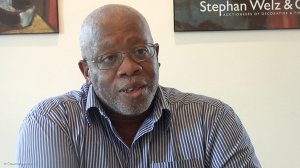The 2015 political calendar looks very interesting indeed. This is the year of the National General Council (NGC) of the ruling African National Congress (ANC). It is also the year of the special national congress and the thirtieth-anniversary national congress of the Congress of South African Trade Unions (Cosatu).
For those who are interested in opposition politics, the Democratic Alliance (DA) will be holding its federal congress.
But what may prove to be one of the most important aspects of the 2015 political calendar is the fact that the main political actors will go into election campaign mode in preparation for next year’s local government elections.
However, what may steal everyone’s thunder are developments on the left of the ruling party and the South African Communist Party – in particular, the Cosatu imbroglio and attempts to realign politics on the left of the tripartite alliance. With regard to Cosatu, the question is whether the labour federation is heading for an out-and-out split. In other words, will the National Union of Metalworkers of South Africa (Numsa) factor undo Cosatu, given the fact that the battle to reinstate Numsa as an affiliate of Cosatu will probably be one of the major fault lines of the Cosatu imbroglio?
What has become clear is that a split is in the interests of neither Cosatu nor the ANC. As was the case prior to the general election last year, the imperative for the ruling party is to go into the local government election campaign with a Cosatu that is cohesive and united behind its election effort. The alternative is a Cosatu that is riven with tensions and by divisions, or even one that has been debilitated by a split, to the detriment of the ANC. Cosatu has, in the past, been an important component of the ANC’s election machinery. If the labour federation fractures even further, the ANC may, as a result, suffer some erosion in electoral support.
For those who are trying to realign politics on the left of the ANC, the assumption is that the working class feels betrayed by the ANC, and what will happen, therefore, is a convergence of class and political interests at the expense of the ANC. If this divergence between the ANC’s notion of the working class as a motive force of the National Democratic Revolution, on the one hand, and the political interests of the working class, on the other, is in line with the assumptions and expectations of political actors on the left of the alliance, the 2016 elections will deliver more shifts in the electoral landscape.
But political actors on the left of the alliance must be open to the possibility of a divergence between class and political interests within the working class in defiance of their core assumptions about political realignment in opposition politics on the left of the ANC. Put differently, they must be open to the possibility of the ANC suffering insignificant losses in electoral support despite erosions in the legitimacy of both the State and the ruling party itself.
It is, in part, for this reason that the NGC of the ANC is important. The NGC, as a curtain- raiser to the 2017 national policy conference and national conference of the ruling party, is the place where some will try to begin the process of creating a new majority in the ANC. It is also the place where others will attempt to impose a different ideological and policy agenda on the ANC. More important, however, is the possibility that provinces such as Gauteng will form part of the attempt to create a new majority in the ANC by positioning themselves as the moral and strategic alternative to the dominant faction in the ruling party. In short, the ANC will be attacked from inside as well as from its left and right.
On the right, the DA will probably divide its political labour between guerrilla tactics in Parliament and a strategy aimed at taking the major towns and cities from the ANC in the local government elections. But the DA has its own internal problems. Some of them became obvious during last year’s election campaign, with some members of its old guard engaging in guerrilla warfare against the party and its leader, Helen Zille. In addition, the DA will have to look very carefully at the relationship between class and voting patterns. It must re-examine the assumption that black middle class voters who are gravitating away from the ANC will necessarily be pulled towards the official opposition. In all probability, the middle class vote will split between the DA and the Economic Freedom Fighters, given the sense of racial alienation that is felt by black professionals in what, in some cases, continues to be a hostile and culturally alienating corporate environment.
EMAIL THIS ARTICLE SAVE THIS ARTICLE
To subscribe email subscriptions@creamermedia.co.za or click here
To advertise email advertising@creamermedia.co.za or click here










